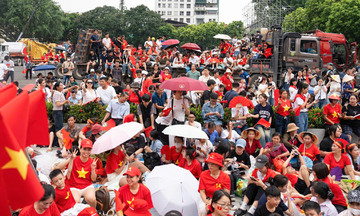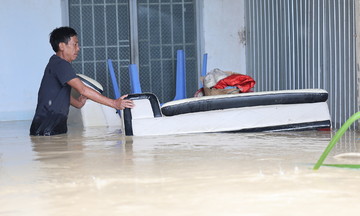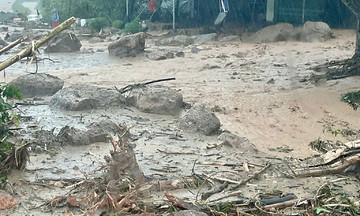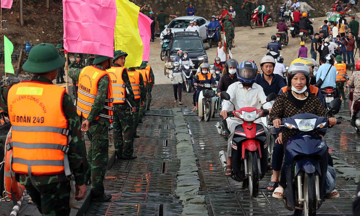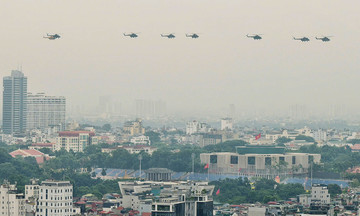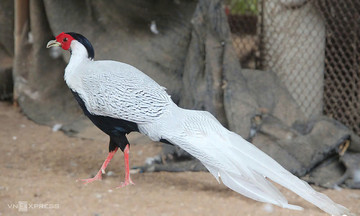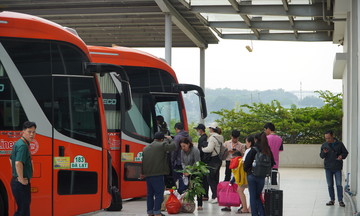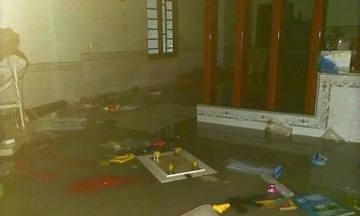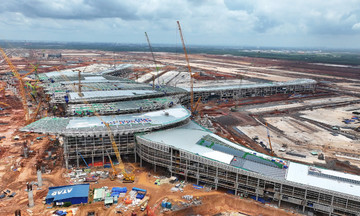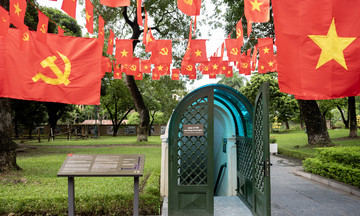A consortium comprising Deo Ca Group, Fecon, Powerchina, and Sucgi has proposed to build metro line 2 (Ben Thanh - Tham Luong section) and other metro projects in Ho Chi Minh City. The Deo Ca Group stated it would collaborate with domestic and international companies to implement projects using the engineering, procurement, and construction (EPC) model. This approach aims to empower Vietnamese companies to master the technology, avoiding reliance on foreign expertise.
Contractors like Deo Ca and Fecon plan to mobilize resources, including trained personnel and equipment, to ensure project quality and timely completion. Fecon, a domestic contractor, is currently working on the tunnel and underground stations of package CP03 of the Nhon - Hanoi Railway Station line.
In preparation, Deo Ca has collaborated with Ho Chi Minh City University of Transport since 2024 to train nearly 200 transport engineers. The company has also sent groups of engineers and workers to the Guangzhou - Dongguan - Shenzhen railway line (China) to learn tunnel boring machine (TBM) technology. Deo Ca has ordered a TBM from China Railway Heavy Industry Corporation, the world's largest TBM manufacturer.
In May, a consortium of Dai Dung Group, Construction Corporation No. 1, and Hoa Phat Group (DCH Consortium) also proposed to the Ho Chi Minh City People's Committee to act as the EPC general contractor for metro projects. These include metro line 2 (Ben Thanh - Tham Luong), Thu Thiem - Long Thanh, and the new urban area Binh Duong - Suoi Tien line. The consortium claims to have the experience, personnel, and resources to ensure project quality, progress, and efficiency. Some contractors have participated in the construction of the underground station of metro line 1 (Ben Thanh - Suoi Tien).
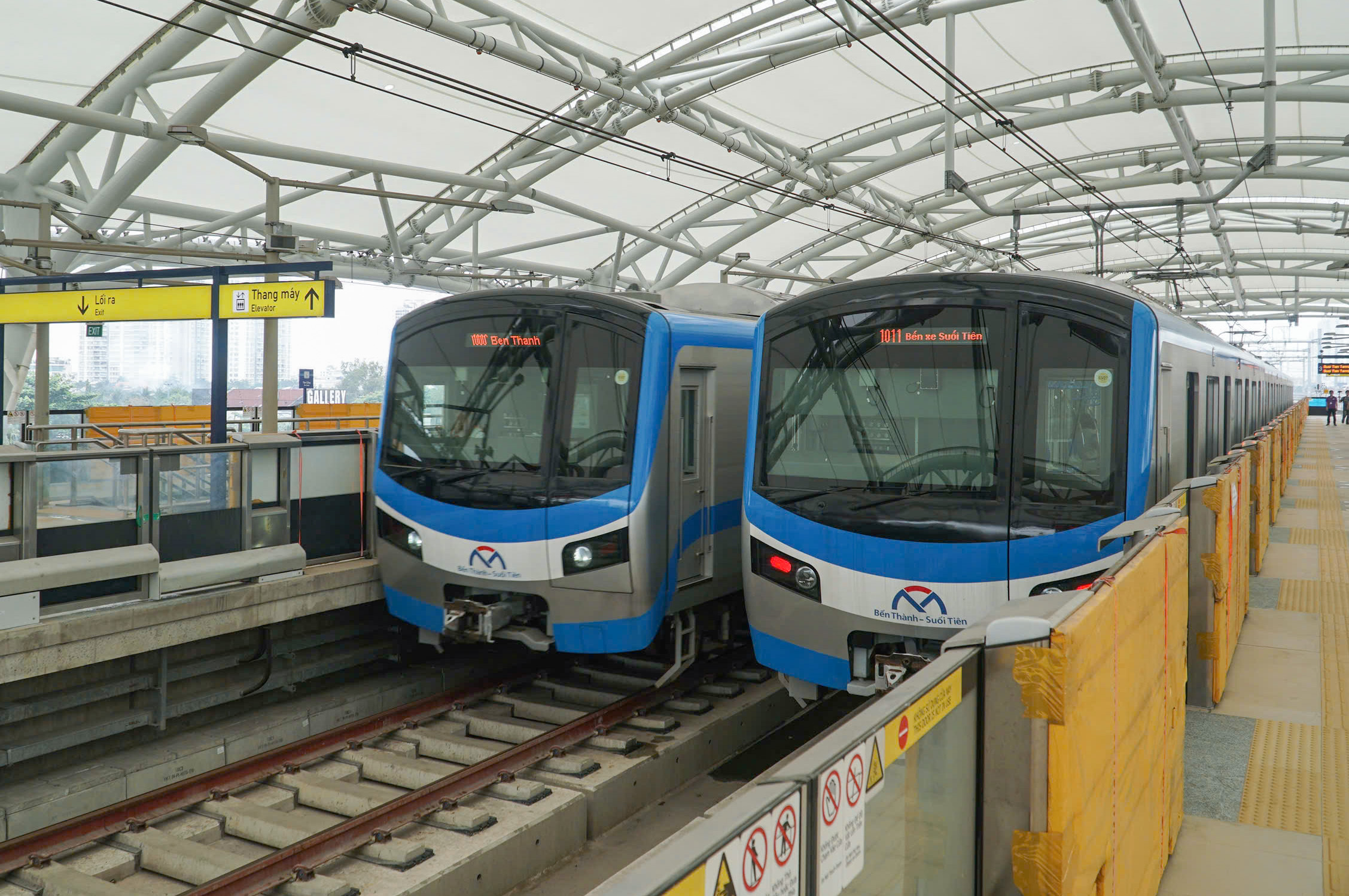 |
Ho Chi Minh City currently only has metro line 1, Ben Thanh - Suoi Tien. Photo: Quynh Tran |
Ho Chi Minh City currently only has metro line 1, Ben Thanh - Suoi Tien. Photo: Quynh Tran
Several large companies have also proposed to invest in urban railway projects. In June, Sovico Group proposed to study and invest in metro line 4, spanning over 47 km from the former Hoc Mon district to Hiep Phuoc urban area in the former Nha Be district. The line includes over 25 km underground, nearly 22 km elevated, 37 stations, and depots in Dong Thanh and Hiep Phuoc. The total investment has not been disclosed.
Truong Hai Group (Thaco) has proposed to study and invest in the 47 km Ben Thanh - Thu Thiem - Long Thanh railway. If not selected as the investor, Thaco will hand over all research results to the city without requesting reimbursement.
Vingroup has proposed to invest in a 48.5 km urban railway connecting downtown Ho Chi Minh City with Can Gio district. This metro line will connect to the Can Gio coastal urban area, also developed by Vingroup, which started construction in 4/2025.
According to Dr. Tran Chung, Chairman of the Vietnam Road and Bridge Investors Association (VARSI), many urban railway projects are dependent on foreign technology and equipment due to foreign contractors acting as general contractors. Meanwhile, Vietnamese companies have experience in elevated railway construction and can handle these projects effectively.
Tunnel construction requires new technology and specialized equipment like TBMs. Companies such as Fecon and Song Da have gained experience as subcontractors in metro tunnel construction. Deo Ca Group has sent engineers and workers abroad for training and purchased TBMs to gradually acquire metro tunnel construction technology.
Dr. Chung believes that private companies, having successfully adopted technologies for mountain tunneling and cable-stayed bridge construction, will quickly adapt to urban railway tunnel construction. Owning TBMs will help domestic companies reduce reliance on foreign contractors, save costs, and enhance competitiveness in urban railway projects. Vietnamese companies taking on these projects could shorten completion times to around 5 years, compared to 10-20 years previously.
Ho Chi Minh City plans to start construction on metro line 2 (Ben Thanh - Tham Luong) by the end of 2025. The city aims to complete 7 metro lines (lines 1 to 7), totaling approximately 355 km, by 2035. In the following 10 years, the network will be expanded by another 155 km, reaching a total length of 510 km. Over the next 20 years, Ho Chi Minh City's urban railway network will be 25 times longer than the current metro line 1 (Ben Thanh - Suoi Tien).
Doan Loan



